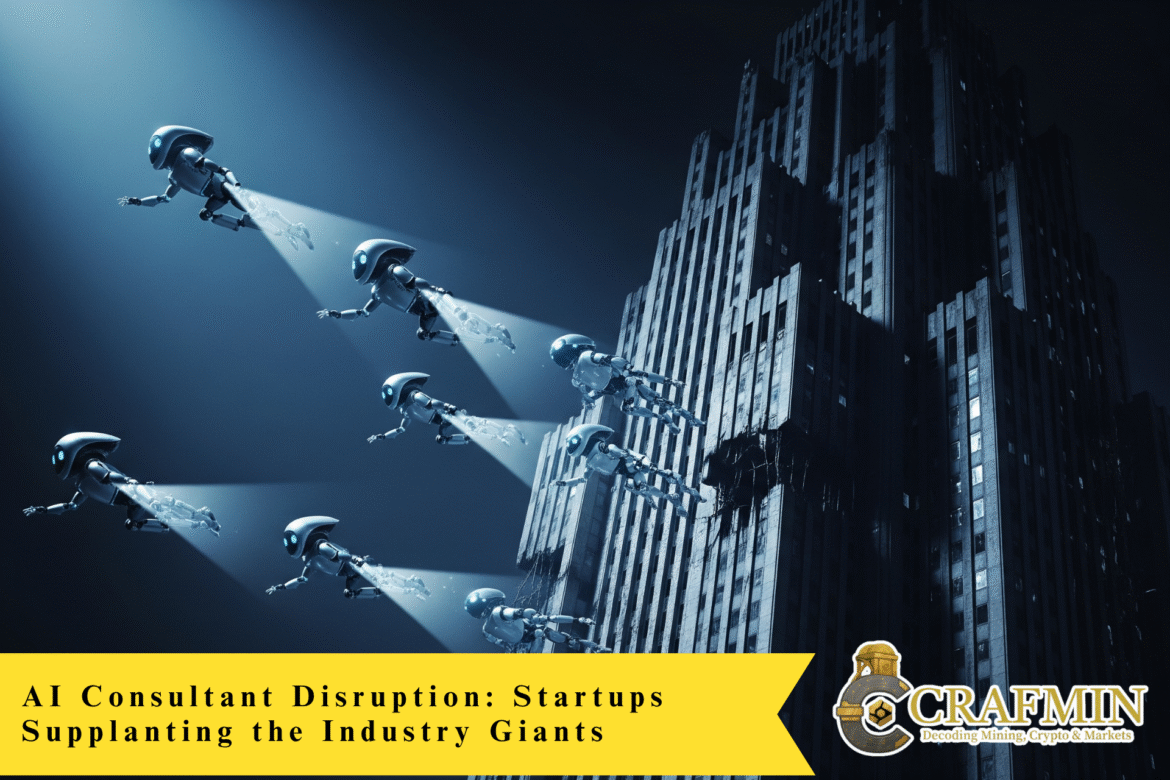Consulting is being rocked by a seismic change. The days of giants like McKinsey and BCG having the monopoly are quickly being replaced by a barrage of nimble, technology-driven startups. These upstart players are blasting through the noise with streamlined services, faster turnaround, and reasonable fees—demonstrating you don’t need to possess elephant-sized firm to deliver meaningful impact. Here is for startups are disrupting big ai consulting firms informative.
These disruptors aren’t just poking the bear. They’re actually taking market share by doing what the big players can’t—or won’t: offering high-quality consulting at scale, through a mix of automation and advanced business strategy.
So, What’s Actually Changing?
A new wave of consulting start-ups is bridging the gap to serve the kind of company big firms usually don’t bother with—i.e., small and mid-sized firms that need hands-on help but can’t pay six-figure retainers.
What’s powering this shift? Enter agentic digital teammates—intelligent software partners that help complete consulting tasks quickly and affordably, without replacing human expertise. Combine that with outcome-based pricing—charging for results, not hours—and you’ve got a new model that’s not only smarter, but fairer.
And this isn’t some distant vision of the future. It’s happening right now.

Consulting giants, meet your match—startups built for speed and results ( Image Source: BCG )
The Hybrid Model That’s Making Waves
Let’s say you’re implementing a new CRM like Salesforce or optimizing your email processes. In the past, you’d hire a consultancy, sit down for weeks of meetings, and shell out money per hour of work—regardless of whether it led to anything or not.
Now? A startup could add an automated intermediary to handle the mundane tasks—say, sorting data, basic setup, and integration. People step in only where strategic thinking or high-level choices are needed.
That’s the model used by Gruve, a technology consulting startup that tripled revenues in six months—$5 million to $15 million—while maintaining enviable profit margins. How did they manage it? A shrewd mix of automation, deliberate staff, and prices tied to results, not hours.
Why the Old Guard Can’t Just Copy This
You would be inclined to believe that old-line firms can simply replicate this model. But they’re stuck.
Legacy consultancies are based on formulaic, hours-based pricing. They rely on long-term retainer work, stack loads of account managers, and hard processes that reward more hours—than better results.
Shifting to value-based, flexible pricing would force these companies to tear down the very infrastructure that is profitable for them. It’s a classic case of the innovator’s dilemma: move too fast, risk killing the business; move too slow, get left behind.
While that, meanwhile, startups have nothing to lose. They’re moving quick, listening to customers, and remaking services from the ground up.
A senior partner at McKinsey told me recently how AI has dramatically raised the bar in consulting:
1) Junior team members are expected to turn around presentations MUCH faster
2) To win new business, you now include in a pitch what would have been final work product before https://t.co/Cg2mwNVJ5L
— Matt Turck (@mattturck) September 15, 2024
Humans and Machines—Better Together
It’s not about giving everything over to machines. It’s about partnership.
Agentic systems handle the repeat work—like data pulls or first draft reports—while trained professionals focus on strategy, relationships, and outcomes.
Here’s what the setup looks like:
Digital teammates handle the operating burden
Humans add judgement, creativity, and decision-making
Customers pay for outcomes—not for what has been done in the most lengthy amount of time
It’s more powerful, more streamlined, and much more human than it appears.
Beyond Consulting: The SaaS-Consulting Intersection
The ripple effect doesn’t stop there. This model is also altering the way businesses approach software.
New consulting businesses are blending the reliability of SaaS with the tailor-made nature of traditional consulting offerings. The result? High-performance outcomes with flexible delivery—and usually at half the cost.
Here’s the pivot in practice:
Consulting upstart are flourishing in areas large companies ignore
AI-powered services are growing faster and are tailoring deeper
Price transparency is replacing fuzzy retainers
Small groups are punching way above their weight using automation
Bottom line: these businesses aren’t merely building better tools. They’re building better businesses.
Read Also: /shy-token-future-bullish-or-bearish
Why This Matters—to Everyone
This’s not a tech trend. It’s organizational transformation that affects businesses of all sizes across all sectors—Crypto businesses in Brisbane, architectural firms in Perth.
No matter what your size or sector, this new model of consulting brings enterprise-class solutions within reach. No behemoth budget, no multi-year commitment. Just clear goals—and a partner who can meet them.
That’s what makes this model so potent. It’s adaptable, streamlined, and laser-focused on what counts: results.
Also Read: TikTok Backs AI Ad Expansion, Even As U.S. Deadline Looms
What’s Next?
Here’s what’s next:
More firms will use digital teammates throughout departments—sales, finance, HR, and more
Consultancies will begin to switch to success-based pricing, not time-based
Small enterprises will be able to access high-end services without high-end costs
Hybrid roles will develop—where human beings and smart tools collaborate side-by-side
This is not a trend waiting to happen. Already, it’s reshaping the way knowledge work is delivered, managed, and measured.
Concluding Thoughts: The Consulting Playbook Is Being Redrawn
McKinsey and others like it are not vanishing—but their dominance is on notice. New-fangled startups with new business models, clever systems, and outcome-based pricing are proving they can challenge—and win.
The new standard isn’t hours worked. It’s value delivered. And for consultants, clients, and everyone in between, that’s a welcome change.
If you’re running a business today, it’s time to rethink what consulting looks like—and ask whether you’re getting results, or just invoices.
Because in this new era, outcomes—not effort—are what truly count.

